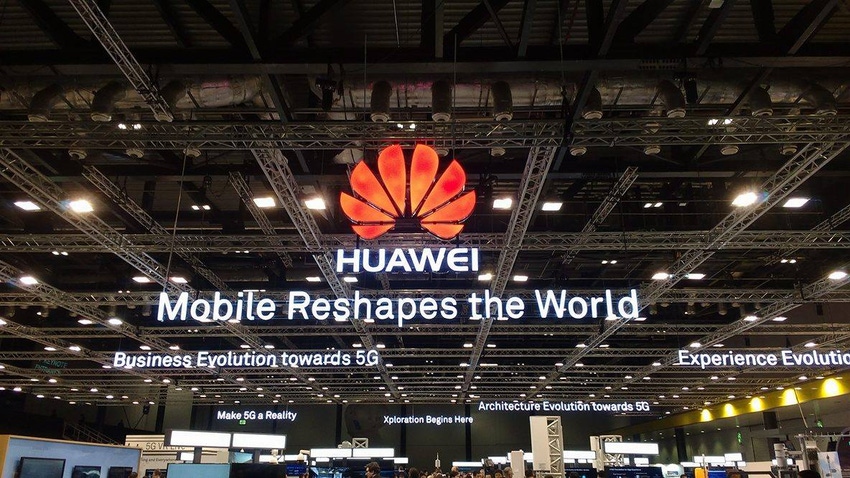Huawei employee arrested in Poland on spying allegations
Huawei’s sales director in Poland, who previously served in the Chinese diplomatic corps, has been arrested by the Polish authorities on spying allegations. Huawei immediately terminated his employment.
January 14, 2019

Huawei’s sales director in Poland, who previously served in the Chinese diplomatic corps, has been arrested by the Polish authorities on spying allegations. Huawei immediately terminated his employment.
More details have been disclosed related to the arrest of Wang Weijing, who also goes by the name Stanislaw Wang. After serving as attaché at the Chinese general consulate in Gdansk, Wang joined Huawei’s Poland office in 2011, first as its PR director then as its sales director responsible for selling to the Polish public sector. Wang was detained on 8 January, on allegations of spying, as was first reported by the Polish public broadcaster TVP.
According to TVP, an Orange employee arrested on the same allegations, identified as Piotr D, had worked at the country’s Internal Security Agency (ISA, or “Agencja Bezpieczeństwa Wewnętrznego (ABW)” in Polish), which carried out the arrests. While at ISA one of his responsibilities was issuing security certificates for equipment used by Poland’s public-sector offices. He left the agency earlier after being accused of corruption but was not formally charged.
The offices of Huawei and Orange were searched respectively following the arrests, though a spokesperson for ISA told Reuters that the allegations against Wang were related to individual actions, not directly linked to Huawei. This is also the line Huawei adopted when it promptly severed the employment relationship with Wang, citing that “in accordance with the terms and conditions of Huawei’s labour contract, we have made this decision because the incident has brought Huawei into disrepute.”
Orange said it did not know if the investigation in Piotr D. was linked to his professional work but would continue to cooperate with the authorities.
Despite the troubles it has run into in markets like the US, New Zealand, Japan, and the UK, Huawei’s business in Eastern Europe has been largely unperturbed. However the latest twist in Poland and the earlier arrest of Meng Wanzhou, Huawei’s CFO, in Canada might put this position under pressure. On Saturday 12 January, Joachim Brudzinski, Poland’s interior minister, called for a EU-NATO joint position with regard to banning Huawei from these markets when speaking on a Polish commercial radio station. “There are concerns about Huawei within NATO as well. It would make most sense to have a joint stance, among EU member states and NATO members,” said Brudzinski.
Then on Sunday 13 January, Karol Okonski, a government official responsible for cyber security, told Reuters that Poland could consider forbidding the public sector from using Huawei products while probing the legal measures to limit Huawei’s access to the private sector. “We do not have the legal means to force private companies or citizens to stop using any IT company’s products. It cannot be ruled out that we will consider legislative changes that would allow such a move,” Okonski said.
Huawei has always denied that it poses security threats, or it spies on behalf of the Chinese government. In a statement it sent out to media after its CFO’s arrest and it sent again after the arrests in Poland, Huawei stressed that it “complies with all applicable laws and regulations in the countries where it operates, and we require every employee to abide by the laws and regulations in the countries where they are based.”
Incidentally, the South China Morning Post reported earlier that, shortly before her arrest in Canada, Meng Wanzhou and Ren Zhengfei, the founder of Huawei and Meng’s father, hosted a town hall meeting for Huawei employees. According to a transcript distributed to Huawei staff and seen by SCMP, both executives discussed extensively on compliance. Cases were divided into “red” and “yellow” lines. By red line, Meng meant the rules where there is “no bargaining and must be strictly complied with”, while by yellow line she referred to cases where strict compliance is not operationally feasible, and the company can build in the costs of flouting the rules as “sunk costs.” She cited labour risks as an example.
“Of course, beyond the yellow and red lines, there may still be another scenario, and that is where the external rules are clear-cut and there’s no contention, but the company is totally unable to comply with in actual operations. In such cases, after a reasonable decision-making process, one may accept the risk of temporary non-compliance,” quoted by SCMP.
Ren also urged his staff to consider both cost and benefit in compliance cases, especially related to laws of the US and EU. SCMP quoted him challenging those present when answering a question: “We must not bind ourselves up just because the US is attacking us. If our hands and feet are bound, then we will not be able to continue producing, then what’s the point of compliance?”
About the Author(s)
You May Also Like








.png?width=300&auto=webp&quality=80&disable=upscale)


_1.jpg?width=300&auto=webp&quality=80&disable=upscale)


.png?width=800&auto=webp&quality=80&disable=upscale)